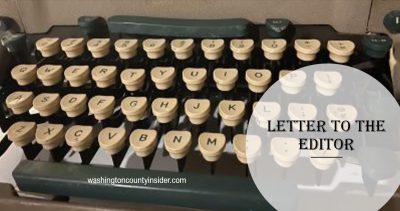June 27, 2024 – Slinger, Wi – June is Alzheimer’s and Brain Awareness Month, offering an important reminder to prioritize brain health. Alzheimer’s and other dementia are a rapidly growing public health issue in Wisconsin and throughout the nation.

As an Alzheimer’s Association volunteer, I understand firsthand the impact this disease has on Wisconsin families. My father lost his battle with Lewy Bodies Dementia in May 2023 at the young age of 67.
It was a challenge navigating the system and finding quality care for him. Now, my hope is to make a positive change for others suffering from this horrible disease and increase the understanding, compassion, and training for caregivers.
Thankfully, since the 2018 enactment of the bipartisan Building Our Largest Dementia (BOLD) Infrastructure for Alzheimer’s Act, progress is being made in improving brain health across the life course in Wisconsin and throughout the nation.
The BOLD Infrastructure for Alzheimer’s Reauthorization Act would continue to build on this progress. Reauthorizing BOLD will ensure state, local and tribal health departments can continue to implement effective dementia interventions such as reducing risk, increasing early detection and diagnosis, and supporting the needs of caregivers.
During Alzheimer’s and Brain Awareness Month and throughout the year, policymakers can play an important role in addressing this critical issue. Please join me and the Alzheimer’s Association in encouraging Representative Scott Fitzgerald to support the BOLD Reauthorization Act.
To learn more about Alzheimer’s disease and how you can get involved in the fight, please visit alz.org
Amanda D.
Slinger, WI
WCI COMMENTING RULES OF ETIQUETTE:
While open and honest debate is encouraged here, Washington County Insider asks that you comply with the following rules for posting. Those who do not comply will have their posts removed which may result in being banned from commenting.
Washington County Insider will not publish comments that:
- Are considered likely to provoke, attack, or offend others. This is known as “trolling.” Trollers know when they are trolling, and so do we. *See definition of “troll” below. If you notice a few consistent blog trolls disappear, you’ll know why.
- Are sexually explicit, abusive, or otherwise objectionable.
- Contains inappropriate or vulgar language that is likely to offend.
- Break the law or condone or encourage unlawful activity. This includes breach of copyright, defamation, and contempt of court.
- Advertise products or services for profit.
- Are seen to impersonate someone else.
- Repeatedly post the same or similar messages (‘spam’)
- Include personal contact details such as telephone numbers and postal or email addresses.
- Include a link or photo that has not been approved by the editor prior to posting.
- Are considered campaigning. See also “trolling” above.
- Are unrelated to the topic.
NOTES:
- Just because your comment doesn’t show up right away doesn’t mean you’re being censored. When you post a comment it must first go through our filtering software. If it fails, your comment goes into a queue for manual approval.
- Just because a comment or advertisement is on the site, doesn’t mean WCI endorses it.
- The above rules are not intended to stop criticism or dissenters, but rather to stop those who are incapable of participating in a civilized manner.
*Trolling: a troll is a person who sows discord on the Internet by starting arguments or upsetting people, by posting inflammatory,[1] extraneous, or off-topic messages in an online community (such as a newsgroup, forum, chat room, or blog) with the intent of provoking readers into an emotional response[2] or of otherwise disrupting normal, on-topic discussion,[3] often for the troll’s amusement. (source: Wikipedia)
All letters must include a US Postal address and direct cell/phone number for record keeping.






